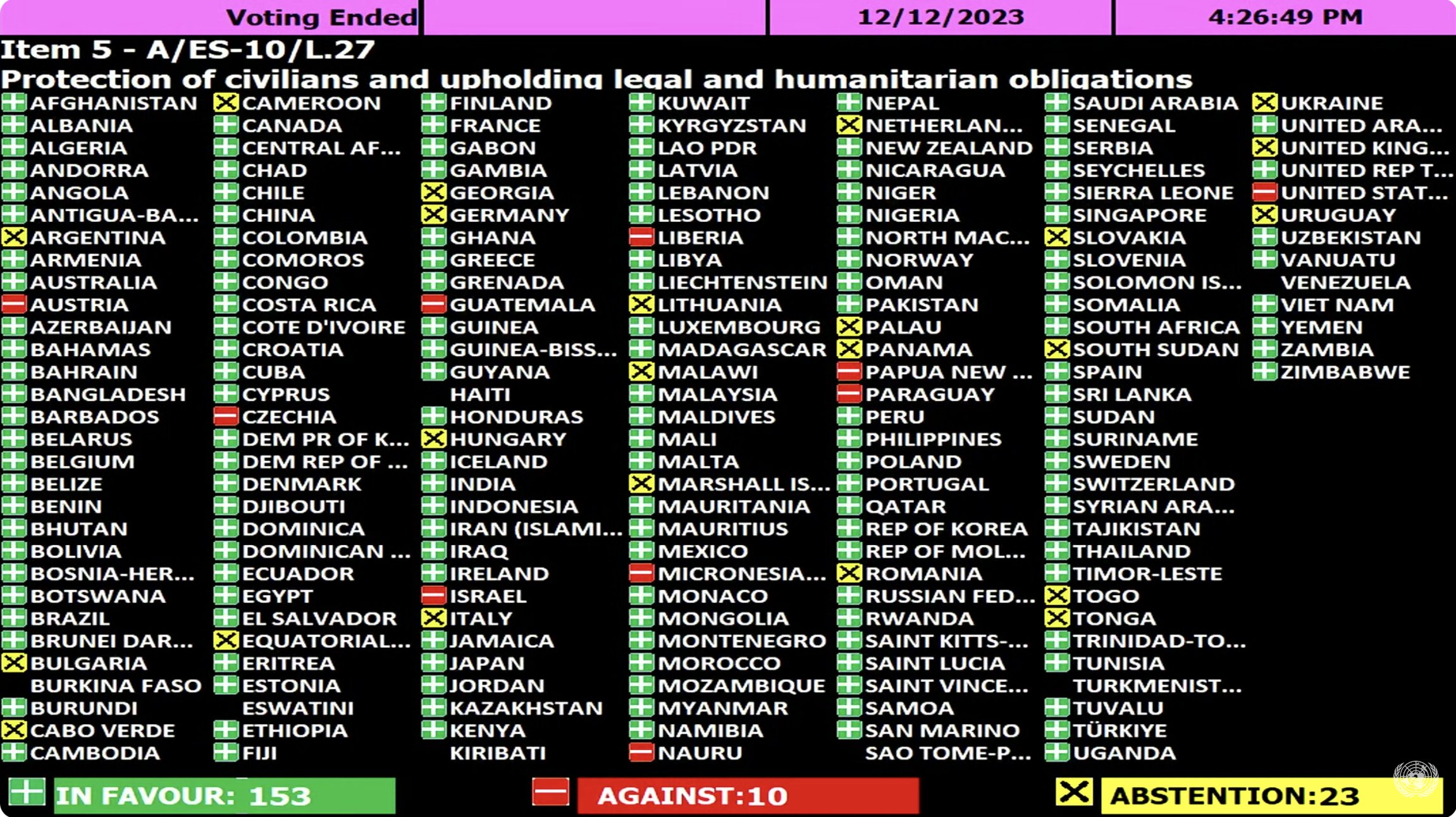
The UN General Assembly has overwhelmingly adopted a non-binding resolution demanding an immediate humanitarian ceasefire in Gaza, alongside the immediate and unconditional release of all hostages and well as "ensuring humanitarian access".
153 member states voted in favour, 10 against and there were 23 abstentions.
This was a second attempt by the UN General Assembly which in October had called for "a humanitarian truce" in a resolution adopted with 121 votes in favour, 14 against and 44 abstentions.
Before the vote, the UN General Assembly president, Dennis Francis, delivered a speech in which he spoke of the “onslaught on civilians, the breakdown of humanitarian systems, and profound disrespect and international law and international humanitarian law”.
Before the vote the governments of Canada, Australia and New Zealand issued a joint statement of support for "efforts towards a sustainable ceasefire in Palestine", according to a joint statement released from the prime ministers of all three governments, Reuters reported.
“The recent pause in hostilities allowed for the release of more than 100 hostages and supported an increase in humanitarian access to affected civilians … We want to see this pause resumed and support urgent international efforts towards a sustainable ceasefire,” read the statement.
“We are alarmed at the diminishing safe space for civilians in Gaza. The price of defeating Hamas cannot be the continuous suffering of all Palestinian civilians,” read the statement, further.
The prime ministers added that a ceasefire must also include Hamas releasing all hostages and to “stop using Palestinian civilians as human shields”, the statement read.
This latest statement comes after the US vetoed a UN security council resolution calling for an immediate humanitarian ceasefire, a move that garnered criticism from several world leaders.
We need your support
Sri Lanka is one of the most dangerous places in the world to be a journalist. Tamil journalists are particularly at threat, with at least 41 media workers known to have been killed by the Sri Lankan state or its paramilitaries during and after the armed conflict.
Despite the risks, our team on the ground remain committed to providing detailed and accurate reporting of developments in the Tamil homeland, across the island and around the world, as well as providing expert analysis and insight from the Tamil point of view
We need your support in keeping our journalism going. Support our work today.
For more ways to donate visit https://donate.tamilguardian.com.

